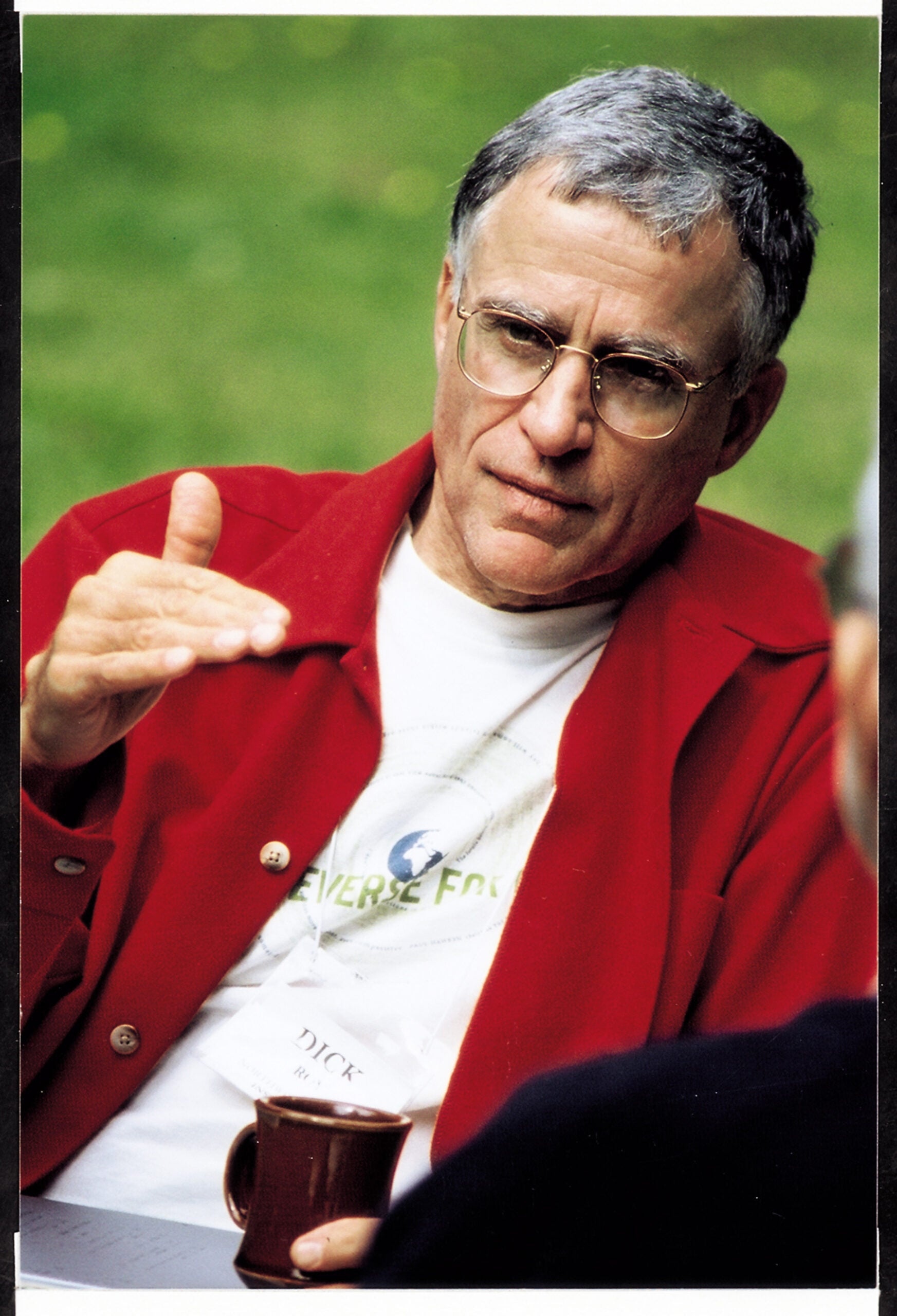In 1993 Dick Roy ’70 walked away from his position as a high-powered attorney, intent on never again collecting a paycheck. Roy had decided, after more than 20 years practicing law, to cash in his six-figure salary to save the earth.
“I didn’t leave my position because of dissatisfaction,” the Portland, Oreg., resident said. “I wanted to be a full-time volunteer so I could align 100 percent of my time, energy, and money with my highest value, which is my concern about the future of the earth.”
Roy previously served on the management team for Stoel Rives in Portland while his wife, Jeanne, dedicated her time to the environment. In 1991, he took a sabbatical from law to work on several environmental projects. Two years later he left the firm permanently, and the couple founded the Northwest Earth Institute (NWEI), a nonprofit organization that strives to educate people about protecting the earth. NWEI programs concentrate on individual responsibility, the importance of a supportive community, and the need to care for the earth.
The Roys were forerunners in taking an “earth-centered” curriculum into mainstream workplaces. NWEI offers a series of courses, led by a trained volunteer and held at workplaces, community and faith centers, homes, and neighborhoods. Course topics include the practice of voluntary simplicity, deep ecology, discovering a sense of place, and choices for sustainable living. Nike, based in Portland, hosts 40 groups involving 400 employees.
During the sessions, participants learn ways to change their lifestyles to improve the environment. But the transformation that takes place among group participants is the real reward, Roy says.
“It’s an incredible, energizing experience,” he said. “The discussions bring people together and empower them. They start to think, ‘I would really like to do something.'”
Launched with 13 people in 1993, NWEI now has 33,000 members all over the country who meet in groups of 8 to 12. While a large concentration of those members is in Oregon, Washington, and Idaho, the program has been introduced in 240 communities in 46 states. “The experience is so rich for participants that they tell their friends, and then when they move, they take it with them,” Roy said. “What that means ultimately is that leadership will come from the people.”
Roy talks about “The Great Turning,” a term environmental activists use to refer to society’s need to evaluate the way we live and to ensure that natural resources are available for future generations. “We have created a society that is not sustainable,” he said. “Our search for the highest total return does not take into account the needs of the earth.”
Although now far removed from his life as a corporate attorney, Roy says his skills as a lawyer help him manage the growing organization. And his HLS experience helped mold him for success, he says. “Being with students who were highly motivated and wanted to make a mark was a very good experience.”
